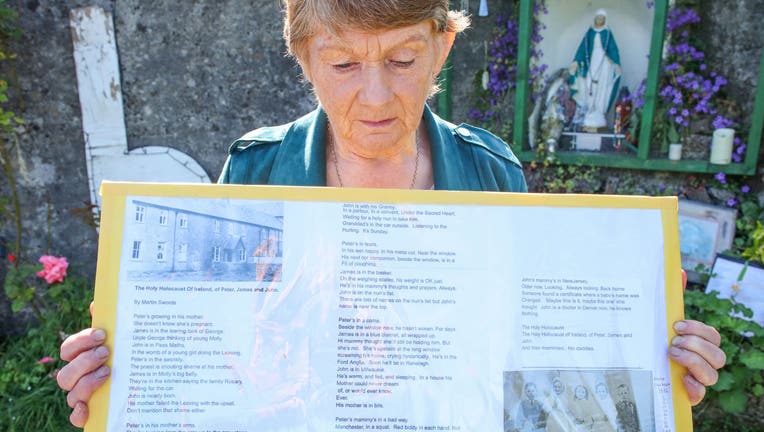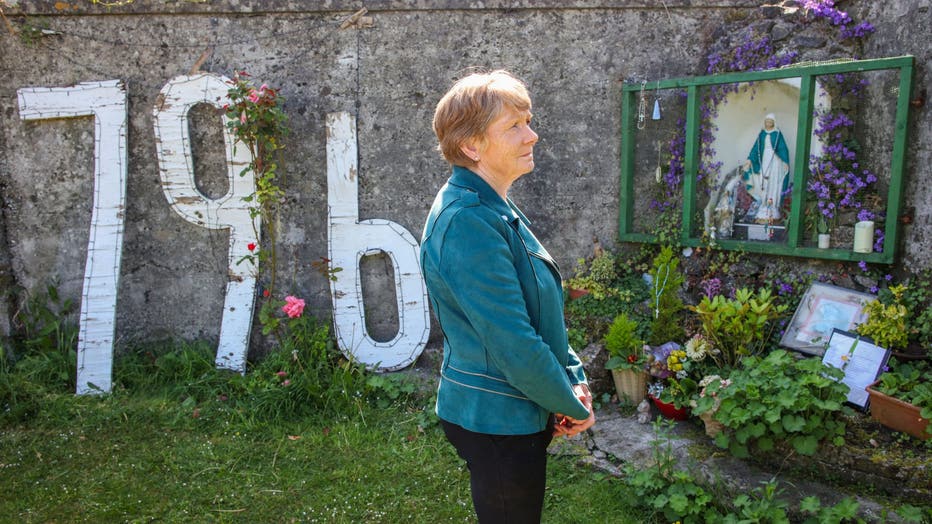
Historian who found Ireland's mass grave of babies was scorned in hometown
Summary: Catherine Corless, an Irish historian, spent over a decade uncovering a mass grave of nearly 800 babies and children at a former Catholic-run mother-and-baby home in Tuam. Despite facing ridicule and hostility, her findings were vindicated in 2025 when excavations began. The Irish government apologized in 2021, and the case highlights systemic neglect of unwed mothers and their children in 20th-century Ireland.
1. The Discovery and Backlash
Catherine Corless, a historian from Tuam, County Galway, dedicated over 10 years to uncovering the truth about the Bon Secours Mother and Baby Home, a Catholic-run institution for unwed mothers. Her 2014 research revealed death certificates for 796 children who died there between the 1920s and 1961—but only one burial record. Corless suspected a mass grave on the property, a claim that drew fierce criticism.
"You're about as credible as Santa Claus. You're a disgrace," a man wrote to Corless in June 2025. "I hope those nuns bring you to court."
Residents in her hometown avoided her, called her "obsessive" and "delusional," and even confronted her relatives. Yet Corless persisted, driven by the plight of the forgotten children.

2. The Shocking Uncovering of the Mass Grave
In 2017, investigators confirmed Corless's suspicions: DNA analysis identified remains of babies and young children buried in an underground sewage structure on the site. The ages of the deceased ranged from 35 weeks gestation to 3 years. This was one of 18 such homes in Ireland where 9,000 children died in the 20th century, often from preventable diseases like tuberculosis and gastroenteritis.
"All those lovely little children and babies, that's the one thing that drove me. That's all that was in my mind, these babies in a sewage system, they have to come out," Corless told The Irish Times.
The Bon Secours home, operated by Catholic nuns until 1961, systematically erased records of these deaths, leaving families in the dark for decades.

3. Vindication and Ongoing Excavation
Corless's resilience paid off in 2025, when crews began excavating the septic tank where the bodies were buried. The process could take up to two years, with survivors and families invited to observe. In 2021, the Irish government issued a formal apology for the systemic abuse and neglect in these institutions.
"It's just beginning to dawn on me now," Corless reflected. "It has taken awhile to sink in."
The excavation aims to recover remains, provide closure, and confront Ireland's dark history of stigmatizing unwed mothers and institutionalizing vulnerable families.
Conclusion
Catherine Corless's unwavering pursuit of justice transformed Tuam into a symbol of Ireland's hidden trauma. Her work forced a national reckoning, leading to apologies, investigations, and now, the painstaking recovery of the lost children. While the road ahead is long, Corless's legacy ensures these voices will no longer be silenced. 💔🌍
Need a summary like this?
Get instant summaries with Harvest